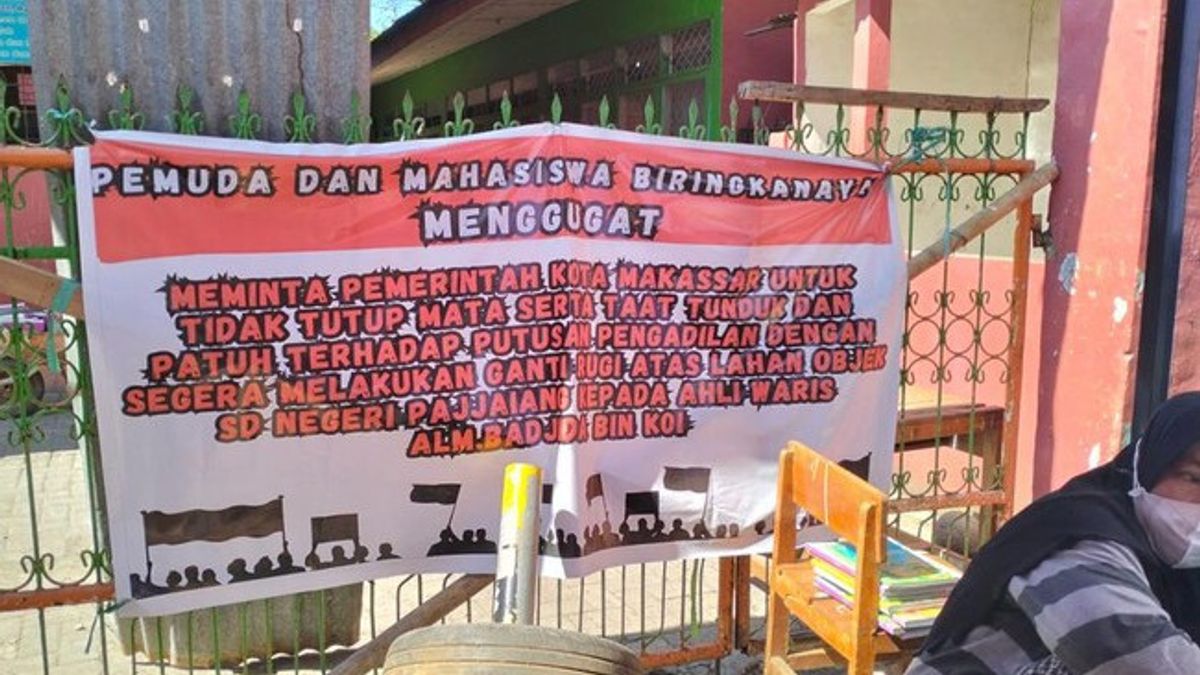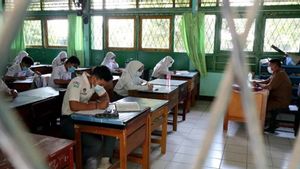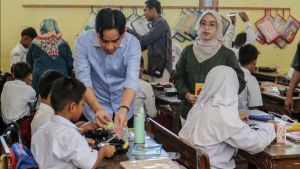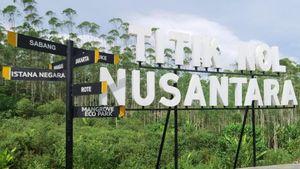JAKARTA The rise of school land dispute cases shows that the government has not been able to provide educational rights for every child in Indonesia under any conditions, said Ubaid Matraji, the National Coordinator of the Indonesian Education Monitoring Network (JPPI).
The commemoration of National Children's Day, which fell July 23, did not necessarily be a happy day. At least that's how it was felt for about 1,000 elementary school students in Makassar, South Sulawesi.
They were forced to study at home in the early days of the new academic year 2024/2025. The reason is because a group of people claiming to be heirs sealed the gate of the complex where three elementary schools were located, namely SD Inpres Pajjaiang, SD Inpres Sudiang, and SD Negeri Sudiang.
A similar fate was experienced by teachers and students at SDN Kuranji, Serang, Banten who were forced to use a small and narrow fence to get in and out of school because the gate was sealed using bamboo wood and fence which was also caused by land disputes.
For the case in Makassar, the dispute began when residents who claimed to be heirs sued the Makassar City Government in 2017 to legal proceedings regarding the ownership of land in the Pajjaiang Elementary School complex covering an area of 8,100 square meters.
The Makassar City Government lost in the first level, appeal, and cassation at the Supreme Court (MA) and decided to pay compensation for the control of the land to the heirs, according to the Supreme Court decision number: 1021 K / Pdt / 2020 dated June 3, 2020. However, the Makassar City Government has not paid compensation for the land demanded by the heirs of Rp. 14 billion for submitting a request for reconsideration (PK).
Of the many cases of dispute over school land that occurred in various regions in Indonesia, teachers and students have always been victims. The teaching and learning process cannot be done ideally because their school building is problematic.
Apart from being closed, another option that is generally given is to move the teaching and learning process to other places, such as vacant land or people's homes. This is definitely not a scene that school children dream of. Instead of enjoying a fun school period, they actually have to accept the fact that they go to school in a place they should not. In fact, education is the right of every child.
Criminal law observer Farizal Pranata Bahri said that the rise of school land disputes occurred because the status of the land for the establishment of the school was not clear who was the owner. Usually, the land that is used as a school is the result of grants, wills, or the exchange process for land transfer orruislag has not been selected.
He added, in some cases, the dispute over school land occurred because of the heir's claim that they were recipients of grants from previous owners who had died. Meanwhile, in other cases, dispute problems can also occur due to an unwritten rollout exchange.
Kornas JPPI Ubaid Matraji said that cases of land disputes that often occur show that the government has not been able to provide protection for the right of education for every child in Indonesia under any conditions. The government, according to Ubaid, does not have a protection system for students if schools are in conflict.
"We don't have a mechanism or mitigation on how to accommodate children whose schools have problems, are in conflict and so on so that we can be sure when there are such cases, children don't go to school," said Ubaid.
Ubaid emphasized that the government is not only unable to provide protection for educational rights in emergency conditions, but also in normal situations. He referred to the large number of students who were disqualified for New Student Admissions (PPDB).
"Just look at the fate of the children who were disqualified from PPDB, there is no attempt by the government to guarantee they stay in school," he said.
Eliminating the difference between public and private schools, according to Ubaid, could be a solution when there is a land dispute that forces students to "repair". When public schools experience problems, they should be able to be accommodated in nearby private schools.
There are many private schools, there are formal and non-formal school models, there are also madrasah models, events, and so on. It must be able to directly accommodate children who are in an emergency situation. So don't let the learning process be disrupted," said Ubaid.
Education is the best investment for the nation's future successor. Seeing the many land dispute problems caused by the unpaid compensation for school land by local governments, it is natural for the public to question the government's commitment to fulfill children's rights to education without obstacles.
The Speaker of the House of Representatives, Puan Maharani, emphasized the importance of changing the mechanism in the education budget. He saw delays in payment of school land affecting the teaching and learning process.
"Don't just because of late payments or repayments, our children are disturbed by learning. This is an ideal condition and it is very important that local governments immediately take steps to solve this problem," said Puan, quoted by the DPR's official website.
SEE ALSO:
"We hope that with swift action from the government, the problem of disrupting the teaching and learning process, whatever it takes, will be quickly resolved. The state is obliged to provide a safe and comfortable learning environment," he said.
He also encouraged the central government to take part in guarding, or even being involved in solving various school land dispute problems that harm children as Indonesia's future generation.
The English, Chinese, Japanese, Arabic, and French versions are automatically generated by the AI. So there may still be inaccuracies in translating, please always see Indonesian as our main language. (system supported by DigitalSiber.id)














